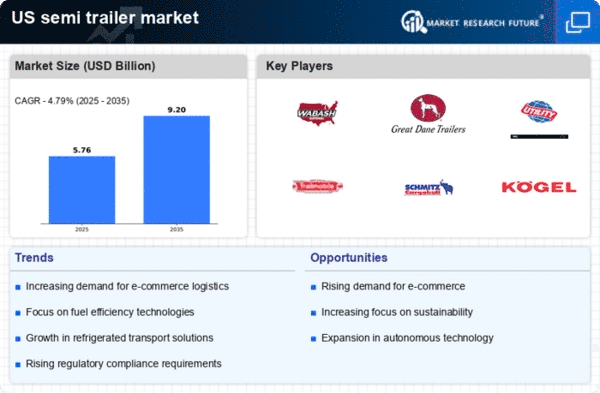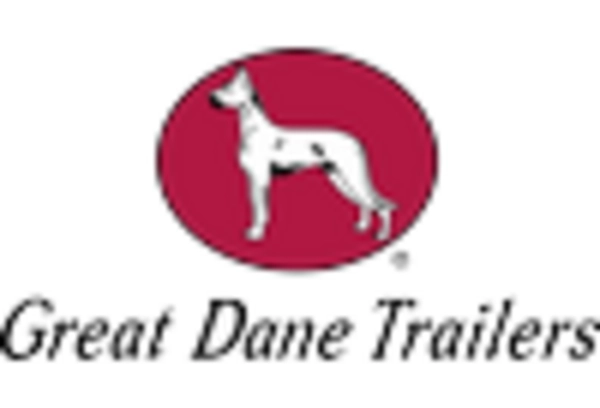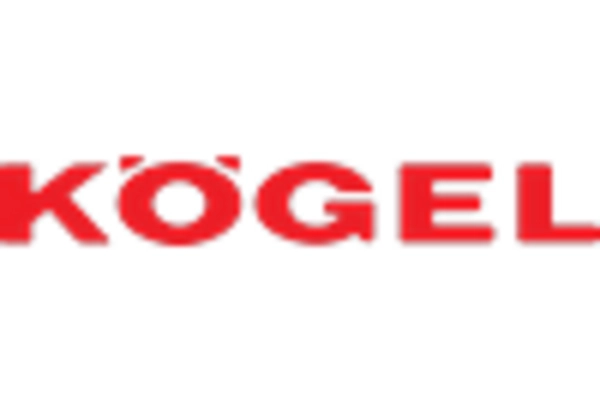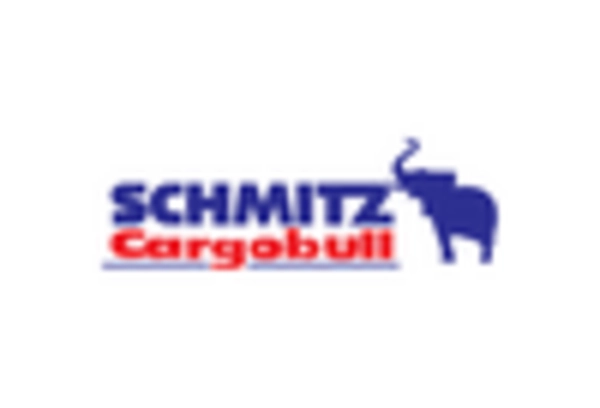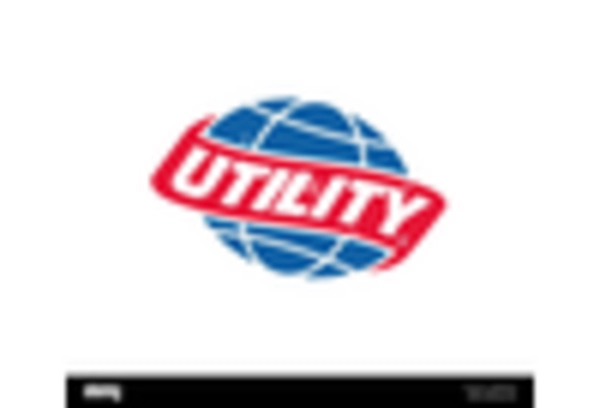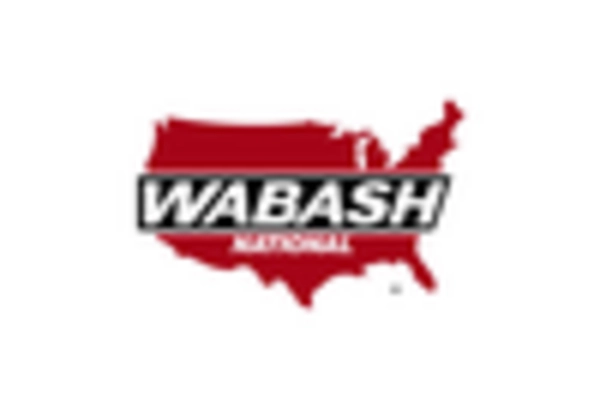Rising Fuel Prices
Rising fuel prices are a critical factor influencing the semi trailer market. As fuel costs continue to fluctuate, logistics companies are seeking ways to optimize their operations and reduce expenses. In 2025, fuel prices are projected to remain volatile, prompting a shift towards more fuel-efficient semi trailers. The semi trailer market is responding by developing trailers equipped with advanced technologies that enhance fuel efficiency, such as lightweight materials and aerodynamic designs. This trend not only helps companies mitigate rising operational costs but also aligns with broader sustainability goals. Consequently, the demand for innovative semi trailers that offer better fuel economy is likely to increase, driving growth in the market.
Growing E-commerce Sector
The expansion of the e-commerce sector in the US is a pivotal driver for the semi trailer market. As online shopping continues to gain traction, logistics and transportation companies are increasingly investing in semi trailers to meet the rising demand for efficient delivery systems. In 2025, the e-commerce market is projected to reach approximately $1 trillion, necessitating a robust transportation infrastructure. This surge in demand for freight services compels companies to upgrade their fleets, thereby stimulating growth in the semi trailer market. The need for timely deliveries and the ability to transport larger volumes of goods further emphasize the importance of semi trailers in the logistics chain. Consequently, the semi trailer market is likely to experience sustained growth as businesses adapt to the evolving landscape of consumer behavior.
Infrastructure Development Initiatives
Ongoing infrastructure development initiatives in the US are significantly influencing the semi trailer market. The federal government has allocated substantial funding for the enhancement of transportation networks, including highways and bridges, which directly impacts the efficiency of freight movement. In 2025, investments in infrastructure are expected to exceed $100 billion, creating a favorable environment for the semi trailer market. Improved road conditions and expanded capacity facilitate smoother transportation, reducing operational costs for logistics companies. This, in turn, encourages the acquisition of new semi trailers to capitalize on enhanced logistics capabilities. As infrastructure projects progress, the semi trailer market is poised to benefit from increased demand for reliable and efficient transportation solutions.
Increased Demand for Refrigerated Trailers
The growing demand for refrigerated trailers is emerging as a significant driver in the semi trailer market. With the rise in consumer preference for fresh and perishable goods, the need for temperature-controlled transportation is becoming paramount. In 2025, the market for refrigerated trailers is expected to expand by over 15%, reflecting the increasing importance of cold chain logistics. The semi trailer market is adapting to this trend by offering specialized trailers that meet the stringent requirements for transporting perishable items. This includes features such as advanced insulation and temperature monitoring systems. As the food and pharmaceutical sectors continue to evolve, the demand for refrigerated semi trailers is likely to surge, further contributing to the overall growth of the market.
Regulatory Compliance and Safety Standards
The semi trailer market is also driven by stringent regulatory compliance and safety standards imposed by federal and state authorities. In 2025, regulations regarding emissions and safety features are becoming increasingly rigorous, compelling manufacturers to innovate and enhance their products. The semi trailer market must adapt to these evolving standards, which may include the integration of advanced braking systems and improved aerodynamics to reduce fuel consumption. Compliance with these regulations not only ensures safety but also enhances the marketability of semi trailers. As companies strive to meet these requirements, the demand for technologically advanced semi trailers is likely to rise, further propelling growth in the market.


